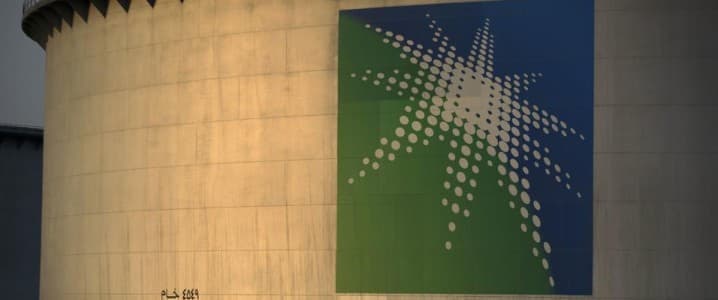Saudi Arabia, the world’s largest crude oil producer, is placing major bets on China’s expanding crude oil market, with Saudi oil giant Aramco extending its downstream presence and crude supply market share in the world’s largest importer.
This week, Saudi Aramco announced two big refinery and petrochemical transactions in China, giving the world’s largest oil company access to the Chinese downstream market and an extra export outlet for 690,000 barrels per day (bpd) of Saudi crude.

Saudi Aramco believes that Chinese oil demand will continue to rise.
With the two deals, Saudi Arabia is counting on the continuation of Chinese oil demand growth. On the other side, the Kingdom seeks to increase its market share in the world’s largest oil importer, where its OPEC+ partner, Russia, has gained market share with cheap crude following the Russian invasion of Ukraine and the sanctions that followed.
Saudi Arabia and Russia have been neck-and-neck on the Chinese oil market for years, but the competition for market share has intensified since the outbreak of the Ukraine conflict, as Russia has shifted its focus to Asia and now views China and India as the primary consumers of its crude, which is frequently sold at steep discounts to international benchmarks.
Saudi Arabia sells its crude oil under long-term contracts, so its market dominance in China is assured. Having shifted its crude and gasoline sales to Asia in response to Western sanctions, Russia is now providing its oil at a discount, which might entice additional Chinese purchasers who do not adhere to G7 pricing limitations.
In January and February, Russia was China’s top crude oil supplier, surpassing Saudi Arabia, which was China’s major oil supplier the previous year.
Related: $11 Trillion Investment Organization Urges Members Against Funding New Oil and Gas Projects
In January and February 2023, Chinese crude imports from Russia increased by 23.8% year-over-year to 1.94 million bpd, according to data from China’s General Administration of Customs cited by Reuters. This was a result of China’s increased purchasing of cheap Russian crude oil at discounts to international benchmarks.
Although Russia attempts to sell its oil, which is prohibited in the West, to Asia at a cost, Saudi Arabia is securing long-term demand in China by investing in petrochemical and refining plants.
The Saudi oil company said on Sunday that a Saudi Aramco joint venture intends to construct a $10 billion refining and petrochemical complex in China over the next three years. The facility in northeast China will have the ability to process 300,000 barrels per day, with Aramco supplying 210,000 barrels per day.
Mohammed Al Qahtani, Aramco’s Executive Vice President of Downstream, stated on Sunday that the project “represents a critical milestone in our ongoing downstream growth plan in China and the wider area, which is an increasingly significant driver of global petrochemical demand.”
The next day, Aramco announced that it would acquire a 10% stake in private refiner Rongsheng Petrochemical for the equivalent of $3.6 billion and that it would provide 480,000 barrels per day of Arabian crude oil to Rongsheng subsidiary Zhejiang Petroleum and Chemical Co. Ltd (ZPC), on a long-term sales agreement.
The two agreements provide Aramco with a long-term export outlet for 690,000 bpd of Saudi oil to China, which would increase Saudi Arabia’s market dominance by securing long-term contracts.
The acquisition “demonstrates Aramco’s long-term commitment to China and its confidence in the fundamentals of the Chinese petrochemicals sector,” according to Al Qahtani of Aramco.
The CEO continued, “It also promises to provide a steady supply of critical crude to one of China’s most significant refiners.”
Russia may be enticing Chinese consumers with cheaper spot cargoes, but Saudi Arabia is playing the long game by locking in oil supplies for decades with long-term contracts.

